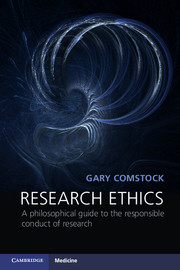Book contents
5 - Articulate reasons
Published online by Cambridge University Press: 05 February 2013
Summary
Researchers are professionals, people who have earned positions in groups with social obligations and special privileges. Those who professed constituted the first profession – the clergy – and the clergy was followed eventually by two other professions: medicine and the law. Modernity knows of many professions, all of which share three characteristics: members have special knowledge resulting from advanced education; a solemn charge to advance the good of society; and the privilege of policing themselves.
If professionals do not conduct themselves in ways that inspire public trust, society may respond by imposing regulations. To fulfill its mission and retain its freedoms, a professional society develops a code of conduct. Many of the rules address situations commonly faced by members; these rules are developed by drawing on the collective wisdom of the group. Other rules address questions not commonly faced by members; sometimes these situations require special task forces to study the issue and issue a recommendation.
Ethical questions that commonly arise should generally be answered in the same way by all members. Should a doctor or lawyer give a newspaper reporter personal information about their patient or client? No. Should an elementary teacher discuss a student’s mental health problems on a blog? No. Should researchers mislabel photos or plagiarize manuscripts? No. Such issues are settled. However, if a given professional does not know how to behave in such familiar circumstances, they will probably be able to find the appropriate response articulated in the code. For while the ethical issues professionals face are not ethical issues the rest of society faces, they are issues that other members of their group have faced. And these familiar problems have given rise to common rules that members should internalize.
- Type
- Chapter
- Information
- Research EthicsA Philosophical Guide to the Responsible Conduct of Research, pp. 105 - 117Publisher: Cambridge University PressPrint publication year: 2013



